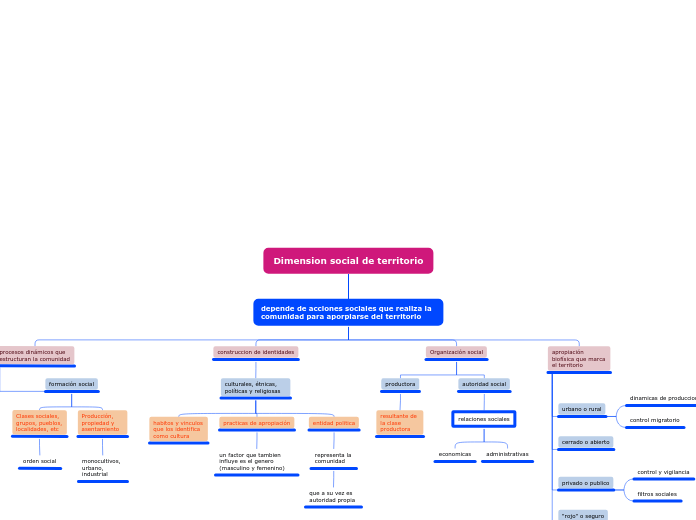av Diana Martinez 5 år siden
997
Dimension social de territorio

av Diana Martinez 5 år siden
997

Mer som dette
Type in the name of the multiple-perspectives text.
Example: Bridge to Terabithia by Katherine Paterson
Identify an important issue from the text that is being presented from different angles. Type it in.
Example: Jesse's drawing talent.
Decide on the fourth point of view
Type in the name of the last character whose perspective on the issue you are going to present.
Example: Leslie Burke, Jesse's new next-door neighbor, and best friend.
filtros sociales
control y vigilancia
Point of view
Type in a relevant quote that highlights the character's point of view. Try to follow a citation format: author's name, chapter, and page.
Example: I can't get the poetry of the trees,' he said. She nodded. Don't worry,' she said. You will someday. He believed her.' (Paterson, 4. 24)
control migratorio
dinamicas de produccion
Whose character does the third point of view belong to?
Type in his/her name.
Example: Mr. Aarons, Jesse's father.
relaciones sociales
What kind of narration introduces the viewpoint?
Choose an answer:
administrativas
economicas
What does the character think, say or do that suggests their perspective on the issue?
Type in a quote and try to maintain the citation format.
Example: 'He would like to show his drawings to his dad, but he didn't dare. (...) He'd thought his dad would be pleased. He wasn't. What are they teaching in that damn school? he had asked.' (Paterson, 2.8)
resultante de la clase productora
Decide on the second point of view
Name the character (it can either be the main character or one of the supporting characters) whose point of view you are presenting.
Example: Miss Edmunds, Jesse's music teacher.
Type in a quote that points out the character's position about the issue.
Try to follow a citation format: author's name, chapter, and page.
Example: 'She said he was unusually talented, and she hoped he wouldn't let anything discourage him.' (Paterson, 2. 8)
entidad politica
representa la comunidad
que a su vez es autoridad propia
practicas de apropiación
How is the viewpoint introduced in the story?
Choose an answer:
un factor que tambien influye es el genero (masculino y femenino)
habitos y vinculos que los identifica como cultura
Decide on the first point of view you are going to present.
Type in the name of the character (it can either be the main character or one of the supporting characters) whose point of view belongs to.
Example: Jesse Oliver Aarons, Jr., the main character of the novel, a fifth-grader living in a rural Southern area.
Type in a relevant quote that highlights the character's point of view towards
depende de acciones sociales que realiza la comunidad para aporpiarse del territorio.
Try following a citation format: author's name, chapter, and page.
Example: 'Jesse drew the way some people drank whiskey. (...) Lord, he loved to draw. (...) When he was in first grade, he told his father that he wanted to be an artist when he grew up.' (Paterson, 2. 7)
Producción, propiedad y asentamiento
monocultivos, urbano, industrial
Clases sociales, grupos, pueblos, localidades, etc
What type of narration introduces the viewpoint?
Choose an answer:
orden social